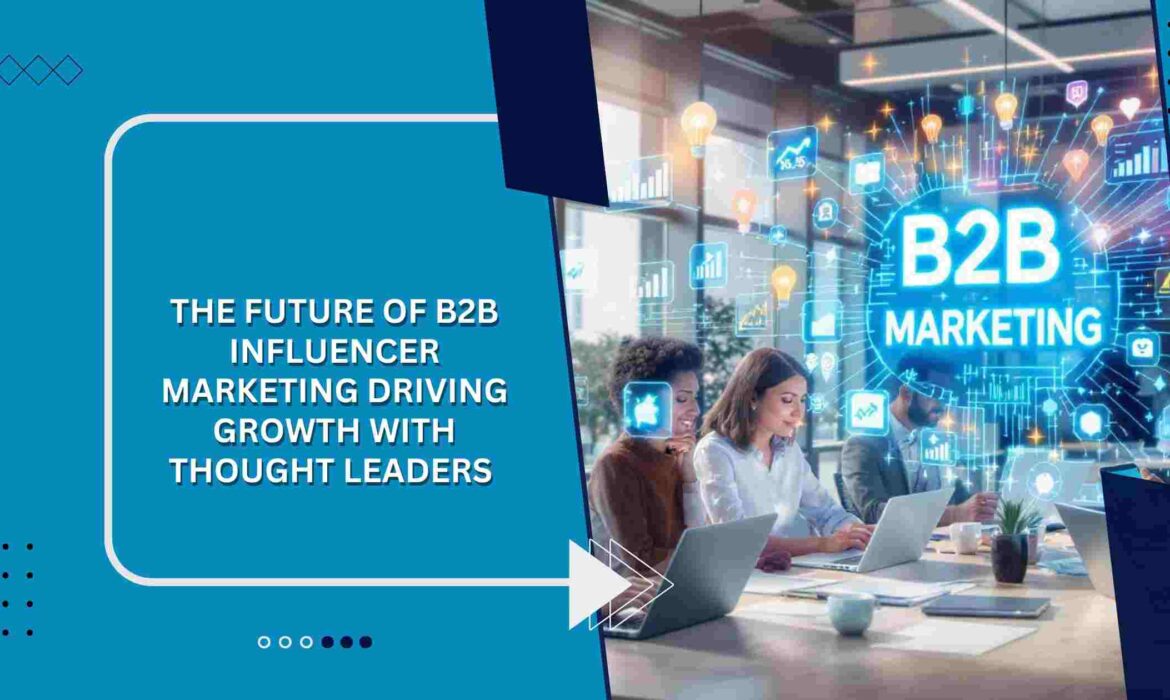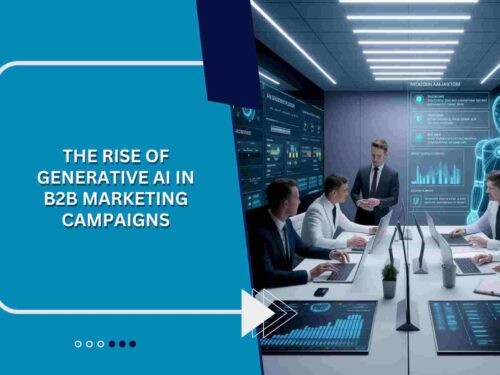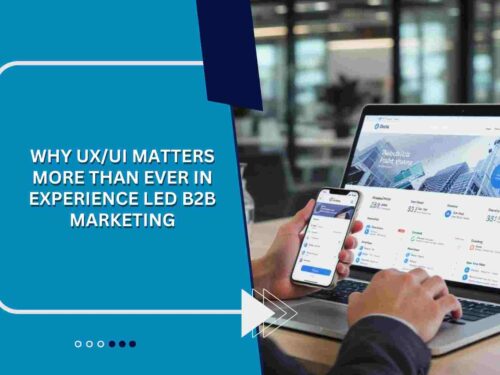B2B marketing has entered an era where credibility, authority, and trust matter more than promotional noise. Buyers no longer make decisions based solely on brand messaging they turn to industry experts, analysts, and voices they trust. This evolution has given rise to a powerful movement: B2B Influencer Marketing.
Unlike consumer-facing influencer strategies, where social reach often trumps relevance, B2B brands focus on partnering with subject matter experts, niche thought leaders, and respected industry voices. These individuals don’t just amplify content they fuel growth by educating, guiding, and shaping perceptions within complex buying journeys.
As we look to the future, B2B Influencer Marketing will no longer be a “nice-to-have” tactic. It is becoming a strategic growth engine. Let’s explore how thought leaders are shaping this future and why businesses that adapt will dominate tomorrow’s competitive landscape.
Why B2B Influencer Marketing Is Evolving
Traditional marketing tactics struggle to capture attention in today’s crowded digital ecosystem. Buyers are skeptical of generic content, banner ads, and one-size-fits-all campaigns. Instead, they gravitate toward authentic conversations led by professionals they trust.
This shift has made B2B Influencer Marketing more than an awareness play it is a credibility builder, lead generation driver, and long-term brand asset.
Key reasons for its evolution include:
- Longer sales cycles: B2B deals often take months or years, making thought leadership a crucial trust-building tool.
- Information overload: Decision-makers filter noise by turning to voices with proven expertise.
- Demand for authenticity: Buyers prefer insights shared by practitioners over polished brand slogans.
- Digital-first interactions: With remote and hybrid work models, digital influence shapes 90% of the buyer’s journey.
As a result, B2B marketers are investing more heavily in influencer partnerships to ensure their brand stories resonate in meaningful ways.
From Awareness to Growth: The New Role of Thought Leaders
In the past, influencers were primarily seen as amplifiers individuals who extended a brand’s reach. Today, the future of B2B Influencer Marketing positions thought leaders as growth partners.
They now serve as:
- Educators: Simplifying complex technologies, solutions, or strategies for target audiences.
- Trust Builders: Offering impartial insights that validate brand credibility.
- Innovation Advocates: Sharing emerging trends and connecting new ideas with business needs.
- Conversion Catalysts: Influencing high-value decision-making by aligning with buyer pain points.
Forward-looking organizations see influencers not just as voices but as co-creators of growth driving everything from awareness to measurable ROI.
The Rise of Niche Micro-Influencers in B2B
One of the most noticeable shifts in B2B Influencer Marketing is the growing importance of micro and niche influencers. Unlike celebrity-level experts who enjoy broad visibility, these specialists operate within focused industries or communities. Their audiences may be smaller in size, but the connections they foster are far more meaningful.
What makes micro-influencers so powerful is the authenticity they bring. Their insights come from hands-on experience and real-world application, which makes their perspectives more relatable and trustworthy. The people who follow them are often closely aligned with a brand’s target audience, which means the conversations they spark are highly relevant to decision-makers.
Instead of broadcasting messages to the masses, micro-influencers engage in dialogue that builds deeper trust. Their relatability allows them to simplify technical concepts, break down complex solutions, and make brands feel more human. In the future, B2B strategies will increasingly shift toward partnering with these niche voices, recognizing that meaningful engagement will always outweigh sheer follower numbers.
Integrating Influencers into the B2B Buyer Journey
To maximize impact, future campaigns will align influencer contributions with every stage of the buyer’s journey. Here’s how:
- Awareness Stage: Influencers highlight industry challenges, emerging trends, and thought-provoking insights that position your brand as relevant.
- Consideration Stage: They provide comparative analysis, case studies, and expert evaluations that simplify decision-making.
- Decision Stage: Influencers validate the brand with success stories, testimonials, and strategic recommendations that reduce buyer hesitation.
- Post-Purchase Stage: Ongoing collaboration ensures customers continue to engage with valuable insights and advocacy-driven content.
By mapping influencers to these touchpoints, B2B Influencer Marketing becomes an engine for sustained growth, not just one-off visibility.
Future-Forward Formats in B2B Influencer Marketing
The future of influencer-driven content won’t just be about blog posts and webinars. As buying behavior evolves, so will the formats that amplify influence.
Expect to see growth in:
- Video Series & Podcasts: Humanized storytelling through long-form conversations.
- Interactive Content: Polls, Q&A sessions, and live digital events that encourage participation.
- Collaborative Research Reports: Data-backed content that combines brand expertise with influencer authority.
- AI-Powered Personalization: Content tailored to specific accounts or buyer personas using influencer-driven insights.
- Social Audio Spaces: Platforms like LinkedIn Audio Rooms where industry discussions thrive.
These formats not only capture attention but also create long-term thought leadership ecosystems around your brand.
Measuring ROI in B2B Influencer Marketing
As marketing budgets continue to shift, proving return on investment is becoming one of the most critical aspects of B2B Influencer Marketing. Brands can no longer rely on vanity metrics like impressions or follower counts to justify campaigns. Instead, the real value lies in understanding the quality and depth of impact influencers create.
For instance, one key measure is lead quality. It’s not about how many people engage with influencer-driven content, but whether the right decision-makers are being drawn into the conversation. Beyond that, marketers are beginning to track how many opportunities within the sales pipeline can be attributed to influencer interactions, making it clear whether influence is translating into tangible business impact.
Another powerful indicator is conversion acceleration. If influencer-led campaigns are helping shorten the decision-making process and reducing the time it takes to close deals, that’s a strong signal of real ROI. Equally important is the effect on brand affinity. Are buyers connecting more deeply with your brand story after engaging with influencer content? Finally, looking at the bigger picture, companies are examining whether influencer relationships contribute to long-term customer value, creating not just immediate wins but sustainable growth.
By focusing on these metrics, organizations can position B2B Influencer Marketing as a true revenue driver rather than a soft branding tactic, reinforcing its place as a strategic engine for business growth.
AI and Technology: Powering the Next Era
Artificial intelligence and emerging technologies are rapidly transforming the future of B2B Influencer Marketing, making it more intelligent, measurable, and outcome-driven. For years, one of the biggest challenges marketers faced was identifying the right influencers and connecting their efforts directly to business growth. Now, AI tools and advanced analytics are bridging that gap, enabling brands to scale their influence strategies with unprecedented precision.
One of the most impactful applications of AI lies in influencer discovery. Instead of relying on manual research or guesswork, AI systems can now evaluate thousands of potential voices and match brands with the ones most aligned to their goals. These tools assess audience demographics, engagement levels, and relevance to ensure collaborations are built on meaningful connections rather than vanity metrics.
Beyond discovery, predictive analytics is reshaping how campaigns are planned. Marketers can now anticipate which influencer-led initiatives are most likely to resonate with buyers and ultimately drive conversions. By analyzing historical data, buyer behavior patterns, and industry signals, predictive models allow brands to allocate budgets more effectively and reduce wasted spend.
Content personalization is another frontier where technology is making a difference. Instead of producing broad, one-size-fits-all campaigns, brands can leverage AI-driven engines to tailor influencer content for specific industries, job roles, or even individual accounts. This level of customization ensures that messaging feels highly relevant, increasing the likelihood of engagement and trust.
Finally, performance tracking has evolved into real-time measurement. Advanced dashboards now provide instant insights into how influencer campaigns are performing not just in terms of likes or shares, but in relation to pipeline growth, lead quality, and revenue contribution. This kind of visibility allows marketers to optimize campaigns on the fly and demonstrate the direct business value of influencer partnerships.
Together, these innovations mean that B2B Influencer Marketing is entering a new era one where strategies are not only scalable but also tightly connected to ROI. Technology ensures that influence is no longer a “soft” branding tactic but a measurable growth driver at the heart of modern B2B strategies.
Why the Future Belongs to B2B Brands That Embrace Influence
The next era of B2B marketing will be shaped by trust, authenticity, and expertise. Businesses that integrate thought leaders into their strategies will not only capture attention but also accelerate buying decisions and create long-term loyalty.
Influencers are no longer peripheral players they are partners in growth. Their ability to simplify complexity, humanize technology, and influence purchasing decisions makes them central to modern strategy.
The companies that recognize and act on this reality will define the future of B2B Influencer Marketing and set the pace for industry leadership.
Ready to build a future-proof B2B Influencer Marketing strategy? Connect with Acceligize today and discover how to turn thought leaders into growth engines for your business.




